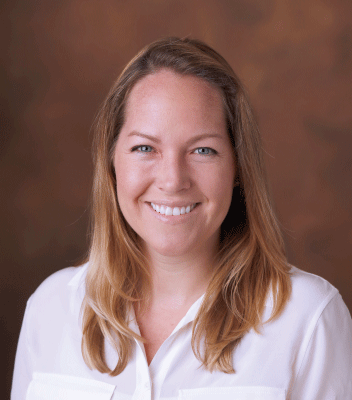2020 Janet Taylor Spence Award

Kathryn Humphreys
Vanderbilt University
Stress and Early Adversity (SEA) Lab
Please briefly describe your research interests.
My research focuses on early experiences, based on an understanding that early development is a period of increased brain plasticity and that caregiving environments are essential for supporting positive developmental trajectories. This research typically falls into three interrelated lines: (1) characterizing how early environments vary (e.g., differentiating neglect from abuse as well as assessing the consistency, cognitive, and emotional enrichment of environments), (2) linking variations in the early environment to child outcomes (e.g., psychopathology, cognitive and adaptive functioning), and (3) identifying predictors of children’s environments (e.g., caregiver characteristics). The broader goal is to identify targets for interventions aimed to improve caregiving experiences, and, in turn, promote positive long-term outcomes in children.
What was the seminal event, or series of events, that led you to an interest in your award-winning research?
Like many junior scholars, I have often wondered whether I truly belonged (i.e., “imposter syndrome”). These feelings were felt acutely when I started a Ph.D. at UCLA, which was (and still is) considered the top clinical psychology doctoral program by some metrics. I arrived and found my cohort to be full of vibrant, bright, and accomplished students. I kept waiting for someone to find out that they had made a huge mistake admitting me, and that it was only a matter of time until I was found out. It was in my first year that I was selected for a National Science Foundation Graduate Research Fellowship. This fellowship gave me two extremely valuable resources. First, and most obviously, it provided me the ability to focus on my research outside of my course work and clinical work. This allowed me to join a second lab (Nim Tottenham’s) in addition to my home lab (Steve Lee’s), and that joint mentorship was instrumental to establishing my program of research. Second, being selected for the NSF fellowship gave me a boost in confidence in a sensitive point in my development. Knowing that established scientists wanted to fund my research ideas was affirming.
Tell us about one of the accomplishments you are most proud of within this area of research. What factors led to your success?
About five years ago I joined Ian’ Gotlib’s lab for a postdoctoral fellowship at Stanford. Along with then first-year graduate student, Lucy King, we began a project (Brain and Behavior: Infant Experiences Study or BABIES) that allowed us to use developmental neuroimaging tools to study infant mental health. In addition to conducting MRI scans with sleeping infants, we conducted multimodal assessments of caregiving at home and in the lab. This work has been both difficult and time consuming, and we are finally in the position to disseminate this research. I am proud of the persistence of our team, grateful for the support we received from Ian, and am excited to be able to study the early experiences and brain development during this important period in life.
What contributions, or contributors, to psychological science do you feel have had a major impact on your career path?
Flexibility and openness to change have been crucial. My academic path has not been linear, in large part due to my personal life. My partner is now a physician, and we both endured several moves for school, internship/residency, fellowship, etc. We have tried to support each other’s careers, live in the same place, and start a family. We have made it through five cities together on this journey and now have two young children. Through each move, I have grown in unexpected ways in terms of joining new research groups, requiring me to accommodate new populations, approaches, and theoretical orientations in my thinking. In particular, I appreciate the strong cognitive-behavioral grounding that I received at UCLA and the attachment and relational lens I gained during my clinical predoctoral and postdoctoral internship at Tulane. I have been fortunate to join the Bucharest Early Intervention Project investigators, and learn from Charley Zeanah, Chuck Nelson, and Nathan Fox as they continue their longitudinal intervention work across the world. Lastly, research funding has allowed me to take risks in my research and experiment with new techniques and tools. I am particularly grateful to the Jacobs Foundation for their support of the questions I hope to tackle in the future.
What questions do you hope to tackle in the future?
So much of what we assume about children’s caregiving environments comes from either self-report measures or laboratory-based observations. While both have been extremely valuable in knowledge generation, there remains a large gap in what we know about children’s experiences in their natural environments. I am working with computer engineers to develop wearable devices to assess the ways in which children, parents, and family networks physically interact throughout their days. If we can get this to work, we will be able to gain a better appreciation of how interactions change across development stages, how children vary in their interactions with their families, and what those interactions might mean for specific areas of functioning (e.g., language development; attachment security).
What does winning this award mean to you both personally and professionally?
I am grateful to be on a list with the current and past awardees – such an impressive list of scientists, many of whom have influenced my thinking. I was particularly proud to share this news with my kids, who have been pilot participants in nearly all of my recent studies.

